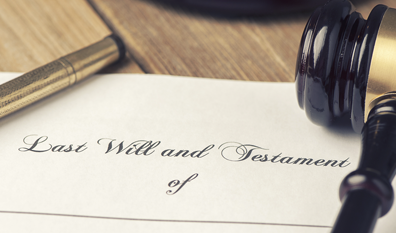Probate refers to the entire process of dealing with the property, money and possessions (estate) of someone who has died. If you have been appointed the executor of someone's will, you are responsible for carrying out probate. This includes gathering all assets, paying off any debts and distributing what is left.
To do this, you have to apply to the probate registry for a Grant of Probate. This is the legal document and authority to administer a person's estate. Once this has been issued, it is up to the executors to continue to distribute the property, money and other possessions and settle any liabilities.
Applying for Probate
Executors of a will can apply for probate online or by mail. Fees are involved, as is some form filling. They will need the original death certificate or an interim death certificate from the coroner and have to fill in details about the deceased person, their relatives and assets.
Executors are also required to value the estate. This involves a property valuation, collating bank statements and financial papers and contacting banks, lenders, pension providers, local councils (to check whether there is any outstanding council tax) and the HMRC (to see if there are unpaid taxes).
If there is inheritance tax to pay, the executors will have to arrange this; otherwise, the Grant of Probate may not be issued.
Is Probate Necessary?
Yes. Regardless of whether or not someone has left a will probate is required. However, there are exceptions. You may not need probate if the value of the estate is less than £5,000 or if the person who died jointly owned property, shares or money. These will automatically pass on to the surviving partner.
Probate Without a Will
If someone dies without a will, they are said to have died intestate, and there is a set of rules that dictates who can administer the estate. When there is a will, executors are chosen who will complete the probate process. But when there isn't one, the law will decide. In England and Wales, the rules of intestacy apply, and they not only determine the estate's beneficiaries, but also who will be permitted to apply for probate.
When someone dies intestate, there is no one to act as a Personal Authority to disperse the deceased person's property and belongings. So an application has to be made to the Probate Registry for a Grant of Letters of Administration. The person subsequently given the authority to administer the estate is then known as the Administrator. The rules of intestacy dictate who can apply to be an Administrator with priority given to close relatives who will benefit from the estate.
How Long Will Probate Take?
You should receive your Grant of Probate within four weeks of applying. The remaining probate process involves a lot of detailed work, which consists of contacting companies, organisations, individuals and local authorities. Consequently, probate takes anywhere from between six months and a year. However, every case is different, and delays may occur. Expect longer if the estate is complicated or if the deceased person didn't leave a will.
Read less














